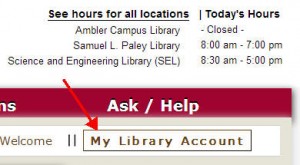As an ally for individuals with physical disabilities, I am deeply troubled by the lack of access at Paley Library. On a surface level Paley appears to be accessible–yes, there are elevators, yes, the library entrance has an electronic button for individuals with physical conditions. We mustn’t forget, however, the multitude of heavy doors within Paley. Using the ladies’ room requires pushing two heavy wooden doors in succession–a challenge for anyone, let alone a person with limited arm strength. The vestibule between the doors is scarcely wide enough to accommodate individuals with a loaded backpack, let alone someone in a wheelchair or with a walker. While it is understandable that renovating these bathrooms is a significant undertaking, there is no excuse for a world-premier university to have a library devoid of accessible bathrooms.
The fact that there are wheelchair-accessible stalls within the bathroom is irrelevant if people with physical disabilities cannot enter the restroom in the first place. Equally problematic are the East and West wings of the second and third floors; both are closed off by heavy doors which do not have an option for automatic opening. Please correct these issues to ensure that Paley Library is accessible for every member of our university community.
Thank you for sharing your concerns about accessibility problems you confronted in Paley Library. Part of the difficulty in maintaining a building of Paley’s age is keeping it compliant with accessibility standards, and we are clearly challenged to make our facility as accessible as possible – though as you point out the bathrooms are a place where we must do better.
Given the problem you encountered it appears we should be checking the pull weight on the doors in the bathrooms and the stack areas. We will contact Temple University Facilities to have them make sure these doors meet the prevailing legal standard for accessibility. If the doors are set to the correct standard pull they should be easier to open. We will make sure that is the case.
Please know that only entry doors need be equipped with automatic opening devices. Interior doors do need to be set for a certain maximum pull/push weight that meets the correct standards. We will definitely have this checked.
If you continue to encounter difficulty with the interior doors, please report it directly to personnel in the Library Administrative Office on the mezzanine level of Paley Library.

